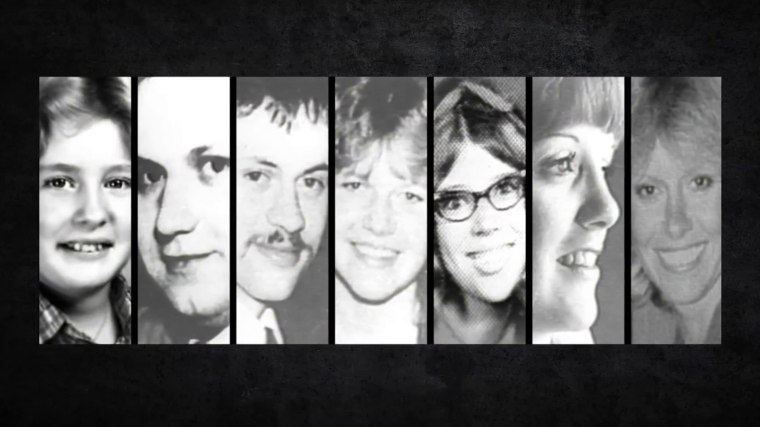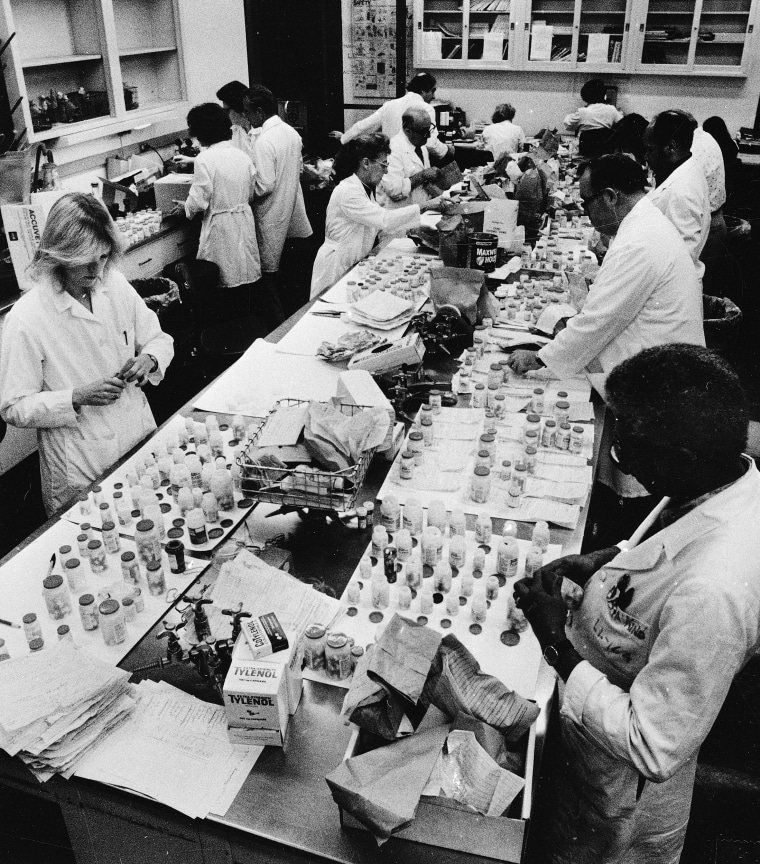It sounds like an urban legend, but it was chillingly real in 1982.
Tylenol capsules laced with cyanide that were sold in the Chicago suburbs were linked to the deaths of seven people, leading to a nationwide panic that had the Food and Drug Administration advising consumers across the country to stop taking Tylenol products.
No one has ever been charged with the murders.
Forty years after that terrifying period in September 1982, investigators say new evidence and a potential motive may be enough to finally solve the case.
Here's what to know about the history of the case and the latest developments.
What are the Tylenol murders?
Seven people between the ages of 12 and 35 years old died in 1982 after ingesting extra-strength Tylenol capsules that were found to have been laced with cyanide, a deadly chemical.

The pills were sold at stores in suburban Chicago, and bottles of Tylenol were immediately pulled from shelves to be tested by health departments for the presence of cyanide.
Local police departments and state’s attorneys offices have been trying to crack the case for 40 years.
Three of the deaths occurred in Arlington Heights, where police told NBC Chicago last year that they still have the pills, bottles and boxes as evidence.

“We still receive tips that are being evaluated and investigated. We also are still — we’re looking at emerging forensic technology,” Sgt. Joe Murphy told NBC Chicago last year.
The Illinois State Police told NBC News the investigation remains ongoing.
Has anyone been investigated for the murders?
A decadeslong investigation has centered around Massachusetts man James Lewis, 76, who was 36 at the time of the murders.
Lewis admitted to the FBI that he sent a ransom letter at the time to Tylenol's parent company, Johnson & Johnson, according to reporting by The Chicago Tribune.
The publication reported this week that it has obtained video and thousands of documents outlining law enforcement's current case and a possible motive for the killings. NBC News has not reviewed that evidence.
Tribune reporter Stacy St. Clair told NBC News correspondent Kathy Park on TODAY Friday that a number of law enforcement sources close to the investigation have told her that Lewis is the only person currently described as a target of the investigation.
Advances in technology have allowed investigators to determine the postmark date on the extortion letter written by Lewis that demands $1 million be wired to a bank account "if you want to stop the killing," according to the Chicago Tribune's review of the documents.
"As you can see, it is easy to place cyanide...into capsules sitting on store shelves," he wrote in the letter.
The new timeline suggests Lewis wrote the letter before the public knew the deaths were linked to the tainted Tylenol pills, according to the Chicago Tribune.
Lewis, who now lives in the Boston area, has long denied any involvement in the murders and has never been charged. NBC News reached out to Lewis and did not receive a response.
Reporters from the Chicago Tribune tracked down Lewis last month as part of the investigative podcast "Unsealed: The Tylenol Murders" and asked him if he has any theories on who the Tylenol Killer might be.
"Ladies, you ever been harassed for something for 40 years that you had nothing to do with?" he answered.
What was the fallout from the case and where does it stand now?
The panic stemming from the Tylenol murders resulted in a permanent change in the packaging of medicine.
Tamper-resistant pill containers were introduced with packaging that allows consumers to notice if a bottle of pills or medication has been opened or altered.
“Our highest responsibility has always been the health and safety of our consumers," Johnson & Johnson said in a statement to NBC News. "While this tragic incident remains unsolved, this event resulted in important industry improvements to patient safety measures including the creation of tamper-resistant packaging."
As for the ongoing case, sources familiar with the investigation told the Chicago Tribune that charges are not imminent and may not come at all because the case lacks physical proof.
However, investigators believe circumstantial evidence is enough to make this a "chargeable" case, but that decision would have to come from prosecutors, according to documents reviewed by the Chicago Tribune. NBC News has not reviewed those documents.